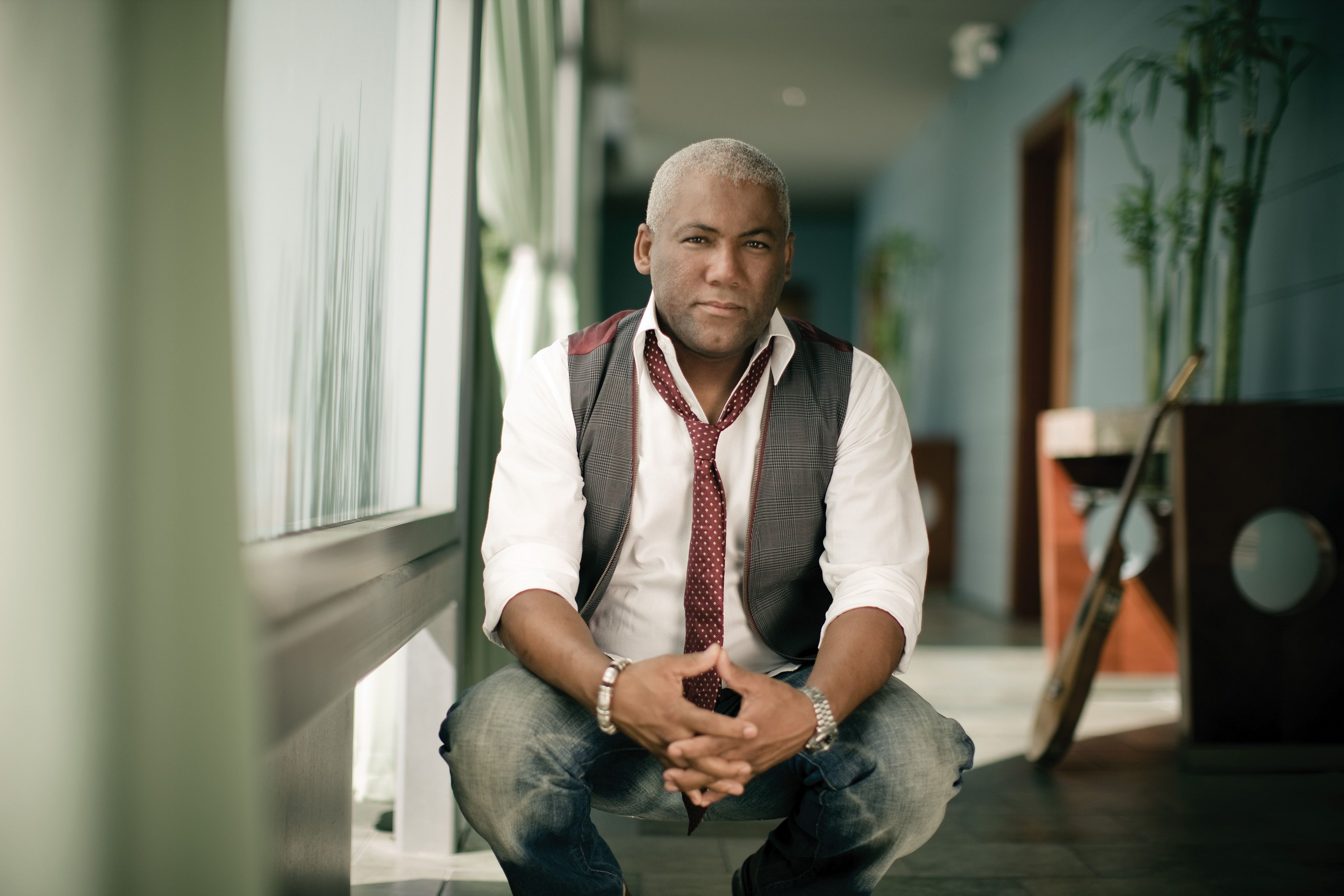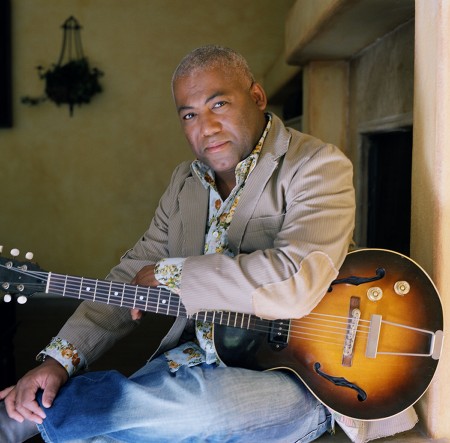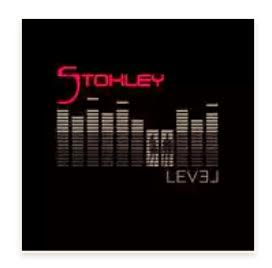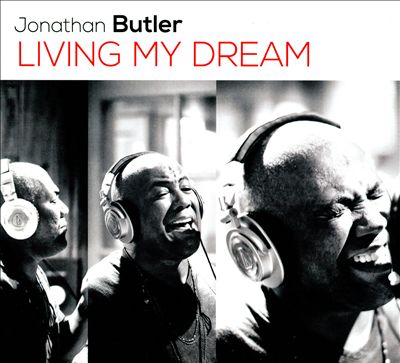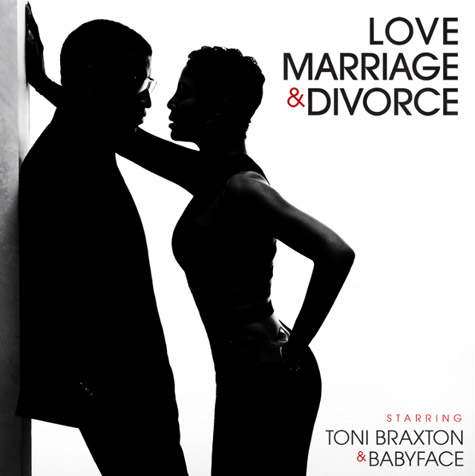His roots are in Cape Town, South Africa, but singer, songwriter, composer and guitarist Jonathan Butler’s musical talents have taken him around the world, wowing fans on multiple continents with his intuitive guitar playing, elastic buttery tenor and his ability to move seamlessly from contemporary or classically styled jazz and gospel to pop and traditional (as well as Africanized) R&B.
Every since he was a child, Mr. Butler used his gifts of song to soothe the souls of himself and the people around him that were caught up in the oppressive chokehold of apartheid, even earning a Sarie Award (the South African equivalent of a Grammy) as a teen before hitting the American airwaves with his inescapable jam, 1988’s “Lies.”
So Strong, his fifteenth CD, is more than new music: it’s now his mantra, having emerged from a year fraught with pain, struggle and loss. Retaining his always-uplifting and heartfelt style of singing, So Strong, which debuted just last month, returns him to the dance floor, throws in some familiar horn players (Rick Braun, Michael Lington and tour mate, Dave Koz), a few new voices and a couple of well-known remakes to further expand his musical message of healing, hope and happiness.
The 50-year-old performer, now based in Los Angeles, speaks spoke about his longevity, his American influences and what he wants his fans to learn about him personally when they hear the music.
LORRIE IRBY JACKSON – It’s good to finally be able to speak with you Mr. Butler, I’ve been following your career for years.
JONATHAN BUTLER- I appreciate that, thank you.
LIJ- I’ve got to ask you, as a South African native, who did you pull for in the World Cup games?
JB- (laughs) I do have a few team favorites, since I used to play soccer when I was a kid, you know? South Africa is one of my favorites, of course, as is Brazil and Argentina.
LIJ- Cool, okay! Let’s focus on the tour for a minute. I know you’ve worked with practically everyone who matters in jazz, but is this the first time you’ve collaborated with Sheila E.?
JB- This was my first time working with Sheila, touring with her, and I gotta tell you, it’s an honor to be traveling with her; she’s a phenomenal musician and an incredible artist. We share so much in common, we both started our careers when we were both very young. We both come from musical families and I can totally relate to that spirit, you know?
LIJ- She must add a really fiery element to the performance.
JB- Well, anyone that’s coming to see the show will literally walk away energized, because this is not your typical smooth jazz tour. It’s a mixture of great music and taking on people on fantastic journeys, which is the fun part of the whole thing.
LIJ- It’s amazing that you’ve been able to regroup and make such energetic music, especially after losing your close friend, Wayman Tisdale, and your own mother. What keeps you able to focus on your art and persevere?
JB- Music in itself is such a powerful healing and vehicle that God uses to touch men and women all over the world. Being a child of God myself, I cling to Him when I go through things. I really believe strongly in running to God when we faces trials of any kind. It’s not easy seeing anybody, especially your parents, become frail, so what I did was go into a place where I could pick up an instrument and sit in the yard and play. I would get songs in my dreams and I just kind of allowed my heart to stay open. My family was instrumental in inspiring me to and encouraging me, because they could tell that the music that was inspiring me was fun, full of flavor and making everybody feel good, so it was obvious we were all on the same page.
LIJ- Not only is it joyous-sounding, it’s also more urban than you’ve been in years.
JB- That’s really what my focus was. I wasn’t feeling going back down the smooth jazz path. There’s nothing wrong with it, but that wasn’t really where my heart truly was. I just wanted to stay true to what I was feeling inside and to keep myself as open as I could.
LIJ- Your instincts are obviously nothing to sneeze at, especially since you’ve been a mainstream success for over 20 years. That’s an incredible accomplishment in itself.
JB- It’s album 15, so thank God for that. I feel really, really blessed. I just wanted to make great music and people that have inspired me over the years, including Stevie Wonder and George Benson, they’ve inspired me to stay in it. God’s given me a talent, and it’s not just for me, it’s for the world. I gotta be honest with you; with all the love I get from my wife and my kids and my friends, I’m excited to be in the place that I am, right here and right now.
LIJ-There are some who consider you an heir apparent to Mr. Benson: do you agree with that assessment or does the comparison bother you?
JB- (laughs) I’m not going to be the one to tell you that, you’ll never hear that answer from me. I’m flattered because George is my hero and the greatest jazz guitar player I know. I feel that I’m still growing and evolving, slowing matching his footsteps, but I can never fill them. I’m just following in his blessings, you know?
LIJ- Speaking of heroes, was it hard for you to cover that huge hit, “I Can See Clearly Now,” from Johnny Nash?
JB- Actually, it was easy, because I knew the song very well, I heard it as a kid when I was growing up. It was a huge, huge hit, it was massive. During this time of personal loss and crisis, I found that I was singing that song a lot to myself, and one day, while I was driving in the car and stopped at the traffic light, I found myself singing it. I thought to myself, I need to get home, record it and just surprise the label with it. And when they (the executives) came up to my house and I played them the song, I sat around looking at their faces, (laughs), and to my surprise, everybody just said, ‘is that one going to be on the album?’ I said ‘yeah, well I did it, I certainly want it to go there.’ That song is a testimony of somebody who’s gone through something, and I thought it was so fitting to where I was and what I was going through right now. Whether you believe in a God or not, you’re still going to feel that there’s a strong message there, you’re going to pay attention.
LIJ- No argument here. I thought your duet with Angie Stone was a surprise, what was it like to record with her?
JB- I met Angie stone in South Africa, about 5 years ago, at one of the Cape Town jazz festivals, our dressing rooms were very close. This has been the first time I’ve ever been able to sing with her. She has heart, you know? You can hear it in her voice when she sings, and you can also tell that she’s lived (through things). It was amazing opportunity, and she had no idea what exactly we’d be singing together, but we kinda walked in there, worked it out together and we nailed it that very same night. She’s absolutely amazing and I have the hugest respect for her.
LIJ- As extensive as your resume is, is there anyone left for you to record with that you haven’t yet?
JB- Well, if there’s anybody on this planet who could just complete what I dream of, it would be Stevie Wonder. He’s been my hero, he’s still my hero and I just cannot wait to work with him.
LIJ- Speaking of heroes, would you consider Michael Jackson in that category? I’m wondering if his legacy has touched you in any way.
JB- Michael Jackson has so much to do with every boy’s or girl’s dreams, whether they were black or white and particularly in the black community across the country and around the world. I grew up with the Jackson 5, and to able to see black kids with afros all successful and everything, it sends a very powerful message, especially to someone growing up in Cape Town, Johannesburg, wherever. He played a major role in shaping the music industry, especially in the way that videos are done today. There would be no Usher If it weren’t for Michael Jackson, there would be no Justin TImberlake if there was no Michael, he set the standard. He was refined in everything he did, just effortless, like how it was to watch and listen to James brown. We can only honor and follow that path that he created, you know?
LIJ- Did you ever get the chance to meet him?
JB- I’ve never met Michael, but I was nominated with him one year. We were all there at Radio city Music Hall—Michael, Smokey Robinson, Terrence Trent D’arby—-I think he won best new artist that night, I believe (1988). He was larger than life then, and will always remain that way.
LIJ- You know you look and sound virtually the same as when you debuted? How do you keep it up?
JB- (cracks up) I gotta thank god for that; it belongs to Him, it comes from Him. I do work out, you have to, otherwise you’ll run yourself into the ground. It’s an important thing to take care of yourself physically and to get as much sleep as you can, it’s the running around and traveling in between gigs is what can wear you out. Sleep is the most important thing.
LIJ- Do you have a preference between playing the guitar versus singing? What’s better, to sing or play guitar?
JB-Well, I’m a singer first, so my emotions are going to be immediately connected to the lyrics in a song.
LIJ-If you could advise a newcomer in the game of music, what would you tell them about being successful in the long run?
JB- Get to know your craft, and try to stay true to yourself and know what your voice is. Don’t try conforming to formulas, there’s a lot of that out there. Be your own songwriter, write your own stuff, just know what your voice is and stay true to that. The world will always need music, and good music goes a long way.
LIJ- We appreciate your time today, Mr. Butler. Before you leave, can you share what you want your Dallas fans to experience when they see you perform tonight?
JB- I hope that there will be a spiritual impartation, that the fans will get to know me spiritually and not just musically. That’s where I come from, that’s who I am and that’s really important to me. I’m a child of God and everything I do is connected to Him and I want to glorify Him in every possible way. So I sincerely hope that they come away feeling encouragement, and confidence, you know what I mean?

